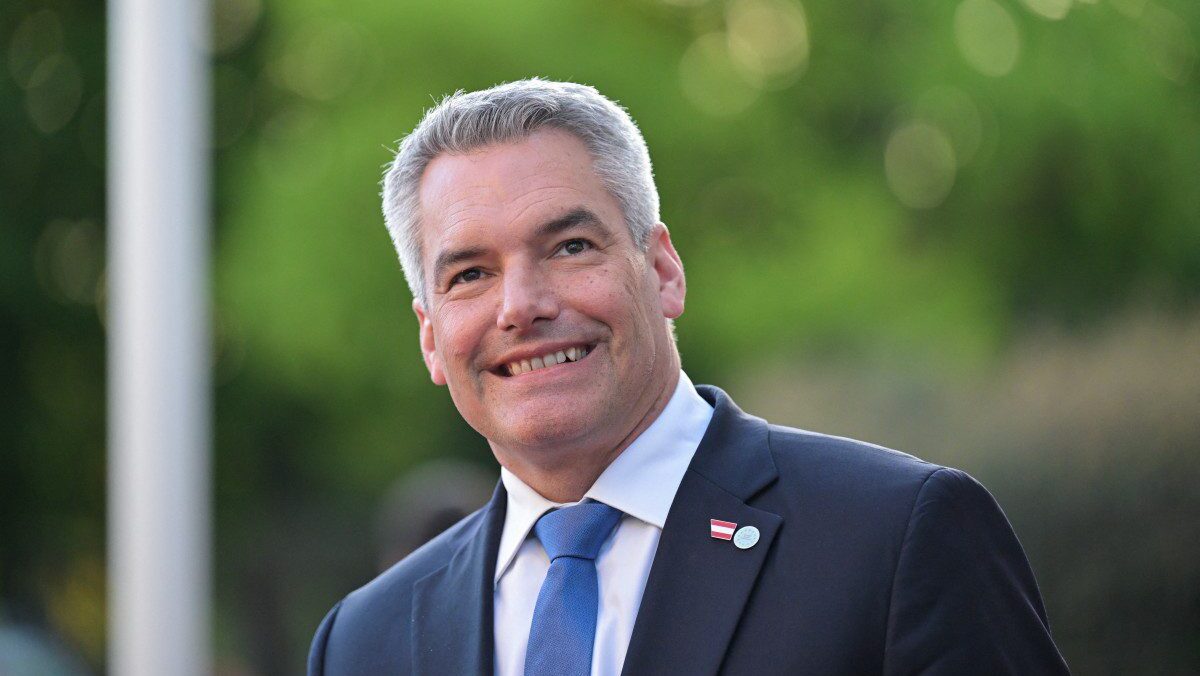
Photo: Joe Klamar / AFP
The center-right Austrian People’s People (ÖVP), which has lost nearly half of its supporters since the beginning of 2021, largely on account of its failure to reduce mass migration, is looking for new ways to regain the trust of voters ahead of European elections in June and national elections in autumn.
To demonstrate to voters that the People’s Party is committed to limiting migration, Chancellor Karl Nehammer (ÖVP) earlier this week announced that DNA tests and other measures would be used to better regulate against family reunification abuse.
Chain migration through family reunification will be “limited through strict checks,” Nehammer announced, noting that Interior Minister Gerhard Karner and Foreign Minister Alexander Schallenberg (ÖVP) have been instructed to “effectively implement the measures in the next few days.”
Previously, genetic testing had been used only “as a last resort when examining family reunification” cases, Interior Minister Gerhard Karner (ÖVP) told the Austrian Press Agency (APA). The minister added that moving forward, to prevent abuse of the lax family reunification system, DNA tests will be utilized much more frequently, and “at the slightest suspicion” of fraudulent activity.
Also as a part of the ÖVP’s new package, security checks will be conducted more thoroughly with the help of specially trained document examiners. Increasingly comprehensive background checks on family members are also expected.
Since the package is part of a new decree issued by the Ministry of the Interior, the ÖVP does not need the approval of its coalition partner, the Greens. Previously, the Greens had rejected the idea.
The conservative, anti-globalist Freedom Party of Austria (FPÖ) and the liberal NEOS party both criticized Nehammers’s proposal.
FPÖ MP and security spokesman Hannes Amesbauer argued that despite the ÖVP’s proposal, the fact remains that the party stands for “unbridled illegal migration.” Nehammer’s DNA testing announcement amounts to a cheap ploy to prevent “the population from being insulted,” the FPÖ MP claimed.
For her part, Stephanie Krisper, who serves as NEOS asylum and migration spokeswoman, slammed the ÖVP’s proposal as little more than “populist election campaign noise,” and added that the proposal itself shows “a lack of legal knowledge on the part of the Chancellor” since DNA tests for family reunification are already being used.
The ÖVP’s announcement is likely to be overshadowed by a call from the anti-globalist Freedom Party of Austria (FPÖ) to ban family reunifications entirely. “We are setting the family reunification quota to zero,” Lower Austrian FPÖ Asylum State Councilor Dr. Christoph Luisser said. The FPÖ is presently the most popular party in Austria, by far, commanding the support of 29% of the national electorate.
According to current Austrian law, anyone granted protection status in Austria is usually allowed to bring their immediate family (children, spouses, parents) with them. Some 900 applications for family reunification are submitted each month in Austria.
The Austrian Ministry of the Interior recorded around 6,900 asylum applications in the first three months of 2024, nearly half (45%) of which were filed by migrants who obtained an entry permit as a part of a family reunification scheme. The figure was 16% for the whole of 2023, revealing that family reunification is increasingly used by migrants as a way to establish themselves in Austria.
